The Paleo diet recommends avoiding grains, beans and legumes — they contain a type of protein called lectins, which are hard to digest and promote intestinal inflammation (1). These foods, which also have a similar impact on your dog’s health, form the base of many store-bought dog foods.
While some dog foods claim to be 100% natural, organic and made with “real” ingredients, these buzzwords are often added to labels that also contain fillers such as corn meal and soy, as well as harmful preservatives such as BHT (Butylated Hydroxytoluene) and BHA (Butylated Hydroxyanisole). Studies show that BHA and BHT are linked to liver cancer and lung tumors in animals (2).
These health hazards are easy to avoid when you feed your dog Paleo-friendly foods. By filling up your pet’s dish with small amounts of dog-friendly fruit, vegetables, organic meat and even algae, you’ll allow your pet to experience a new level of health, too.
Love turmeric recipes?
Add power-packed anti-inflammatories to every meal with these FREE turmeric recipes!
20 Paleo-Friendly Foods Dogs Can Eat
Here are Paleo foods your dog can eat (many of which you can eat every day, too!).
1. Chicken (Cooked)
Baked, grilled and roasted chicken make the top of the list for Paleo-friendly dog foods. As an excellent source of lean protein, chicken is a food you can feed your dog liberally (in addition to other varieties of animal protein, which we’ll mention in just a moment).
[tweet_quote] Filled with lean protein, chicken is one of the best “people” food for dogs.[/tweet_quote]
Just be sure that all bones are removed before treating your dog to chicken, because poultry bones are much smaller and easier for dogs to choke on. Smaller bones such as chicken wings can cause intestinal blockages in dogs, which can be fatal.
2. Sweet Potato
When you whip up your favorite Sweet Potato recipe, don’t forget to share a few bites with your furry friend. Sweet potatoes are an excellent source of fiber and beta-carotene, which can help improve your dog’s digestion and eyesight. Just be sure to go easy on the sweet potato, as high levels of vitamin A can be toxic to dogs (3).
If you have a larger dog, 1-2 tablespoons of sweet potato each day is considered a safe amount, while 1-2 teaspoons of sweet potato is suitable for smaller dogs.
3. Pumpkin
As a cousin of the sweet potato, cooked pumpkin is also safe for your pooch to eat. The fiber in pumpkin can help relieve canine tummy troubles, such as constipation or diarrhea. As another rich source of vitamin A, it’s best to feed your fur baby pumpkin in smaller amounts (1-2 tablespoons for larger dogs, 1-2 teaspoons for smaller dogs).
4. Eggs (Cooked)
As a complete source of protein, vitamins and minerals, cooked eggs with the yolk, which is where all of the B vitamins are concentrated, make the perfect weekend brunch for two (your furry friend and you!).
[tweet_quote] Scramble up a few extra eggs to share with Fido — dogs love it![/tweet_quote]
Your dog can also eat hard boiled eggs. While some sources say raw eggs are okay for dogs because they’re less susceptible to salmonella, it’s still best to serve your dog cooked eggs to avoid any potential health risks.
5. Wild Salmon (Cooked)
Your dog can eat many varieties of fish, as long as all the bones are removed. We recommend choosing wild salmon over farmed fish whenever possible, as farmed fish have been shown to contain higher levels of pollutants and carcinogenic chemicals (4).
6. Apples
Apples are like nature’s toothbrush. A few apple slices per day can help freshen your canine’s breath and keep their teeth clean, while also providing several essential nutrients such as fiber and vitamin C.
Since apples are a low glycemic fruit, they’re a better choice for your pup to enjoy each day when it comes to weight management (5).
7. Shrimp (Cooked)
If your furry friend likes seafood, you may want to treat him to cooked shrimp once in a while. Shrimp is a good source of protein and electrolytes such as potassium and magnesium.
Important: Shrimp is only safe for your dog to eat once the shell, tail, head and legs have been removed, as these smaller parts of the shrimp are choking hazards. Also, make sure you only feed your dog cooked shrimp, as raw shrimp can be packed with harmful bacteria.
8. Turkey (Cooked)
Like chicken, turkey is another excellent source of lean protein for your pet. Just be sure to feed your pet real, cooked turkey rather than processed deli turkey meat slices, which are extremely high in sodium.
9. Sardines (Cooked)
Sardines are rich in omega-3 essential fatty acids, which can help promote a shinier coat and cardiovascular health. Omega-3’s are also an anti-inflammatory nutrient (6).
[tweet_quote] Sardines packed in water help give your dog a shiny coat and a healthy heart.[/tweet_quote]
As a smaller fish, sardines absorb fewer toxins and heavy metals that are found in the ocean, such as mercury. This makes sardines a healthier choice than larger fish such as albacore tuna, which are higher in toxic chemicals (7). Like salmon, buy wild caught sardines and make sure they are packed in water (sardines covered in oil, sauces, salt and other ingredients can be harmful to your pet). Also, make sure to inspect your sardines and remove any bones, as they can be a choking hazard.
10. Honey
If your pet has a sweet tooth, treat him to a few tastes of raw, local honey!
If you’ve ever taken a teaspoon of local honey to help fight allergies and strengthen your immune system, you’ll be happy to know that local honey can provide the same health benefits to your pet.
Raw and locally sourced honey is said to be most beneficial for addressing allergies because it contains small amounts of local pollen. While more research is needed in this area, local honey may help you and your dog react less to the pollen over time. [tweet_quote] If your dog has a sweet tooth, try feeding her a little local honey to help strengthen the immune system.[/tweet_quote]
When choosing a variety of honey, always be sure to use unpasteurized, unfiltered honey because it’s still a raw food that contains plenty of enzymes. Processed, pasteurized honey goes through a heating process that leaves it with fewer nutrients, and won’t have the same health benefits.
You can add raw, local honey to your dog’s diet by including it in homemade doggy treats, mixing a teaspoon of raw honey into your pet’s water. Remember, however, that honey should only be given in moderate amounts to full-grown, healthy dogs. Puppies or dogs with weak immune systems should not partake.
11. Beef (Cooked)
Kick your pet’s nutrition up a notch by letting him have a few bites of your grass-fed beef, which will be higher in omega-3 essential fatty acids than farmed beef (8). Again, just make sure that the beef is cooked to avoid feeding your furry friend any harmful bacteria.
12. Bananas
As a good source of fiber, bananas can help relieve digestive upset, such as constipation and diarrhea. However, as a fruit that’s higher in sugar, bananas should be given to your pup in moderation (as a treat) to avoid weight gain. A few pieces of sliced banana once or twice a week should be fine.
13. Blueberries
Like apples, blueberries are a low glycemic fruit, which means they can be enjoyed more often than other fruit. As a treat, both fresh and frozen blueberries can be given to your dog and are packed with minerals, fiber and vitamins. Tip: Frozen blueberries make a refreshing, antioxidant-rich treat for your pup to cool down with in the summer.
14. Broccoli (Cooked)
Small amounts of broccoli are safe for your dog to eat as long as it’s cooked, not raw. Broccoli is extremely high in vitamin C, which is one of the best nutrients for boosting immune system health (9).
If your dog is on the pickier side and turns up his nose at a green vegetable, you can try mixing small amounts of steamed broccoli in with his ground beef or turkey for extra nutrition.
15. Coconut Oil
If your pup is a little backed up, coconut oil is an effective natural remedy for constipation relief. Since it’s full of healthy saturated fats, coconut oil can also help improve the shine and appearance of your furry friend’s coat.
Coconut oil contains a special nutrient called lauric acid, which is what gives it antifungal, antiviral and antibacterial properties (10). In other words, coconut oil is a superfood for your dog’s gut and immune system.
You can add coconut oil to your dog’s diet by including it in homemade dog treat recipes or mixing it in with his regular food.
16. Chlorella
Yes, your dog can eat algae!
Chlorella is a single-celled green algae that’s rich in plant protein, amino acids and the nucleic acids RNA and DNA. RNA and DNA help repair and regenerate cells, promoting cognitive function and an overall healthier body (11).
There are many chlorella supplements formulated for dogs, which can be found at your local health food store.
17. Bell Peppers
Green, red, yellow and orange bell peppers are safe for your pooch to eat, in raw or cooked form. Since they’re a good source of vitamin C, there’s nothing wrong with giving your dog a few pieces of a crisp, crunchy bell pepper to snack on. Tip: to make sure your dog really gets the most health benefits of bell peppers, cook them a bit or blend them into a puree to break down the cell walls. This helps your dog digest the nutrients better.
18. Oranges
Like bananas, oranges are safe and beneficial for dogs to eat—but only in small amounts.
Oranges are higher in sugar, which can be a problem for your pet when it comes to weight management and blood sugar imbalances, such as diabetes. Don’t feed them the peel either, which can be rough on their digestive tracts. Some dogs may be sensitive to the citric acid in oranges as well. [tweet_quote] Oranges are safe to feed to dogs, but only in small amounts.[/tweet_quote]
That being said, sharing a few small segments of an orange once a week won’t do any harm, and will offer your dog a healthy dose of antioxidant vitamins and minerals. In general, no more than a few small pieces are needed when it comes to feeding your dog any high glycemic fruit.
19. Pineapple
Pineapple can benefit your dog’s digestive system due to bromelain, an enzyme they contain. Bromelain has been shown to help kill parasites and reduce systemic inflammation (12). Since pineapple is high in sugar, it should also be given to your dog in moderation. A few small pieces of pineapple make a great treat. Tip: Like blueberries, pineapples make great frozen treats for your dog in the summer!
20. Bone Broth
Bone broth has been nicknamed “liquid gold” by health foodies because of its superior nutrient profile. It’s one of the only foods to contain collagen, a protein needed for healthy joints, digestion and even healthy hair (or in your dog’s case, a shiny coat). Bone broth is also rich in glucosamine, an amino acid that helps reduce joint pain and inflammation, which makes it a therapeutic food for older dogs with arthritis.
When it comes to feeding your dog bone broth, be sure it doesn’t have onions, garlic or other ingredients that are poisonous to your dog. To have complete control over the ingredients, it’s best to avoid store bought varieties and make your own “puppy-approved” bone broth at home.
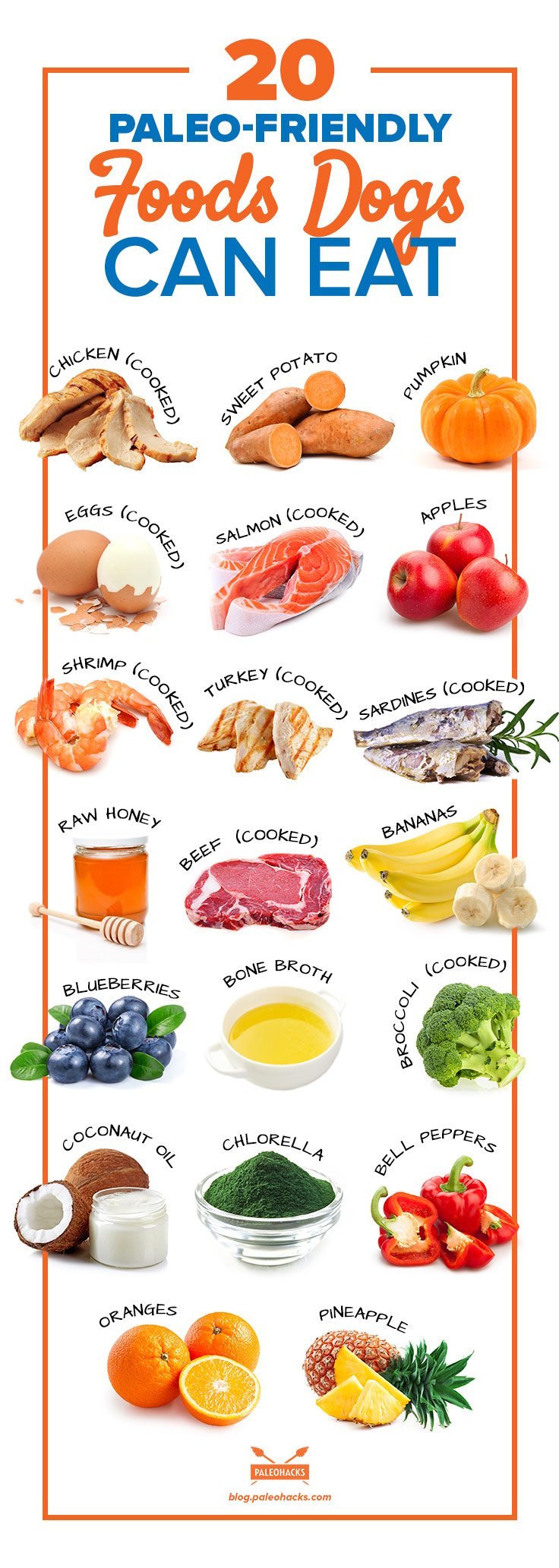


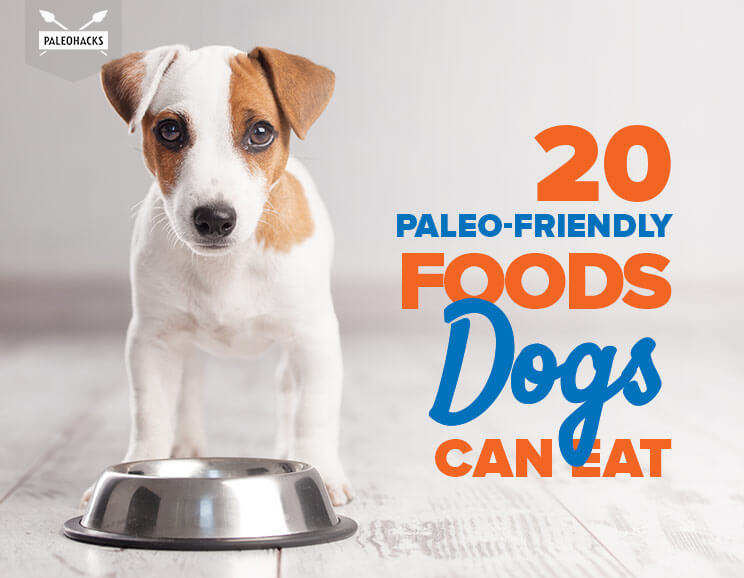

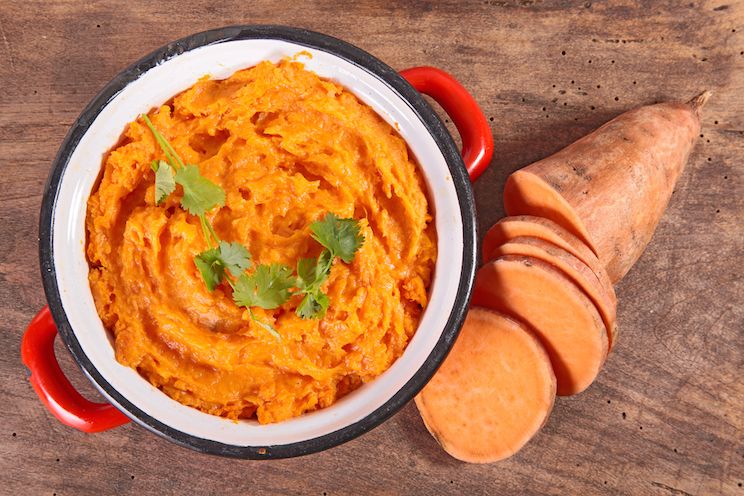

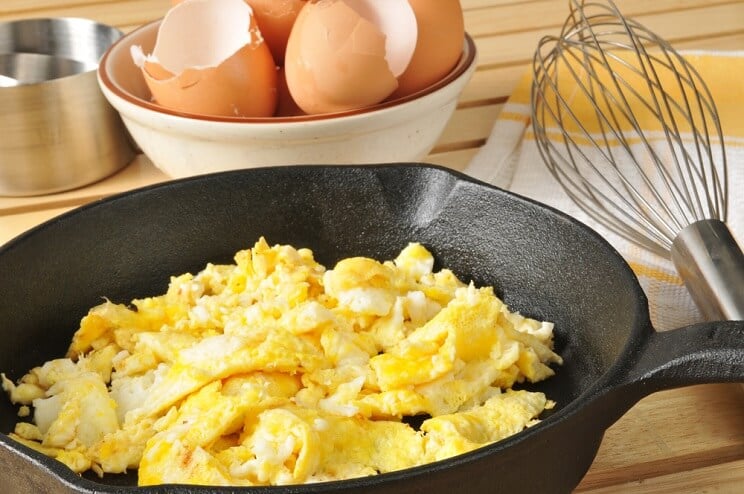
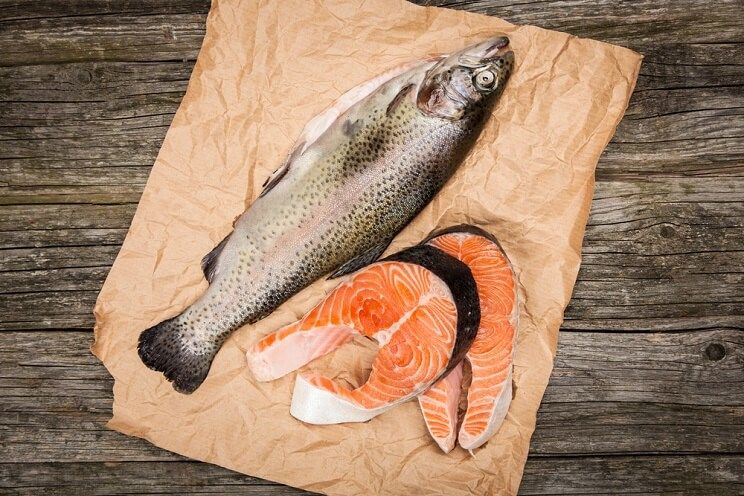

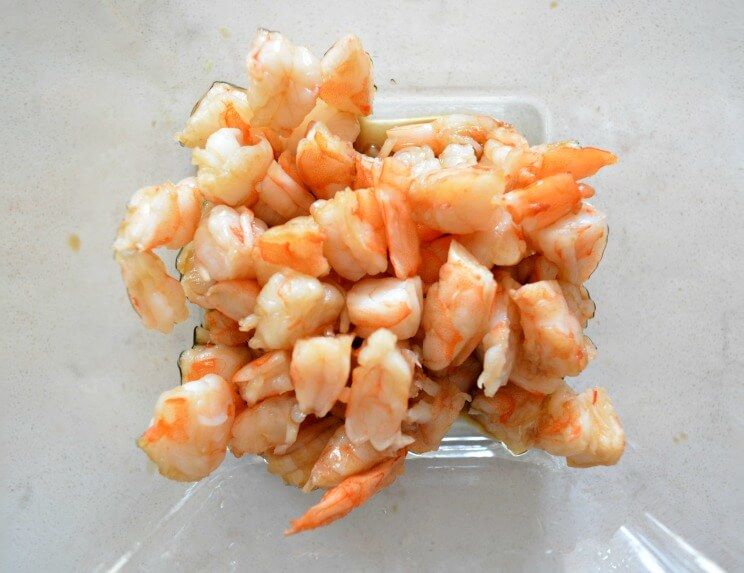
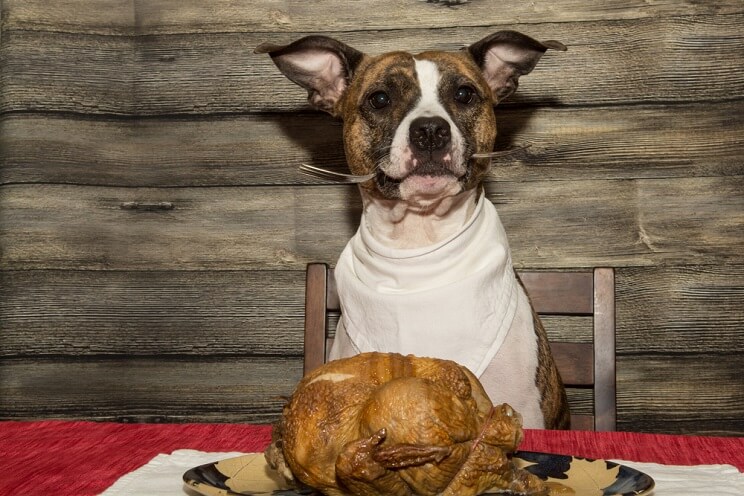


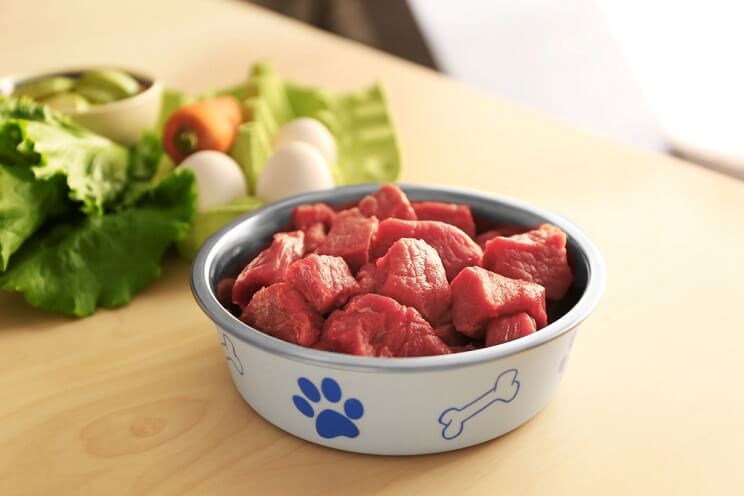



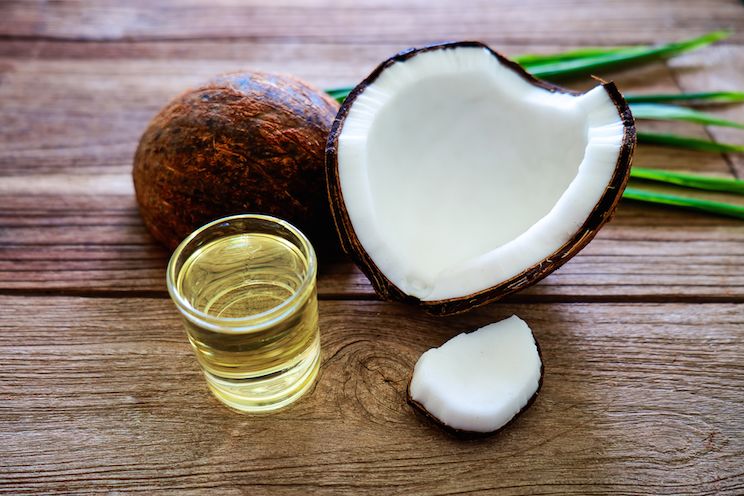
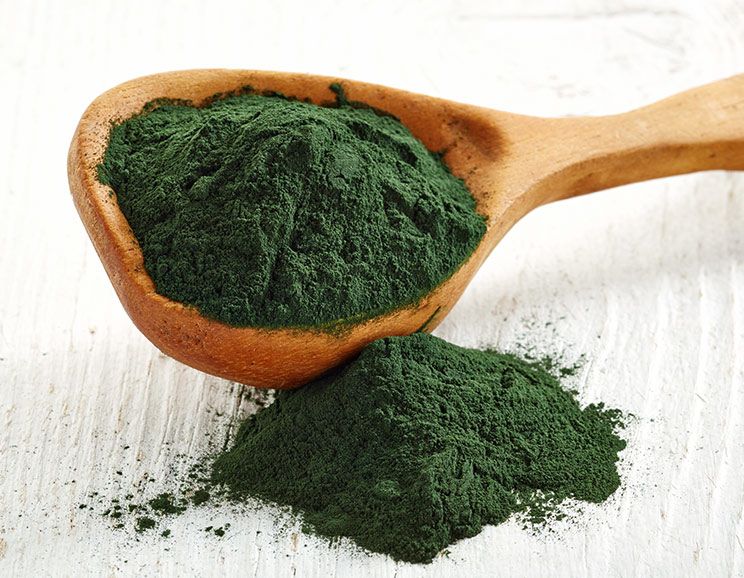
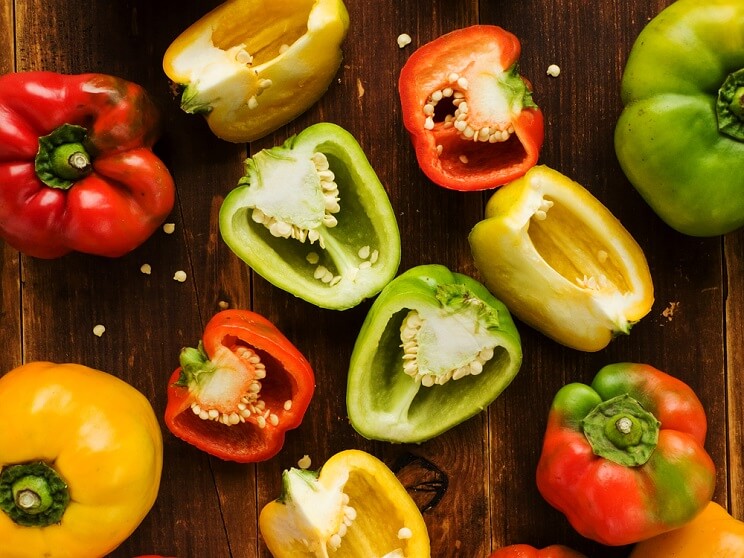
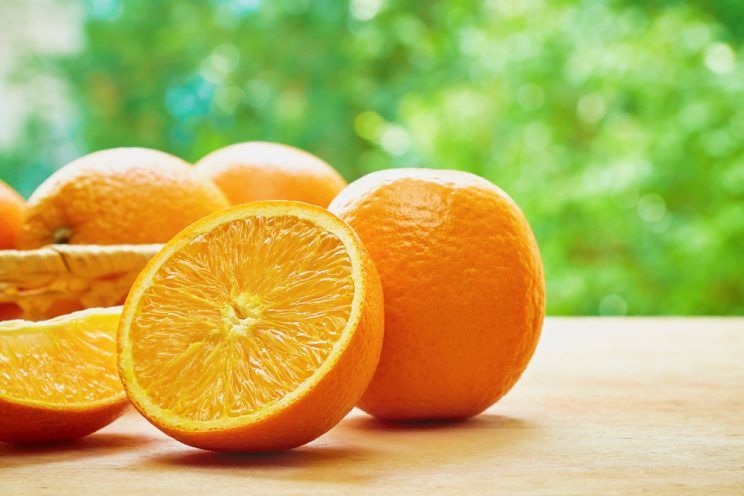

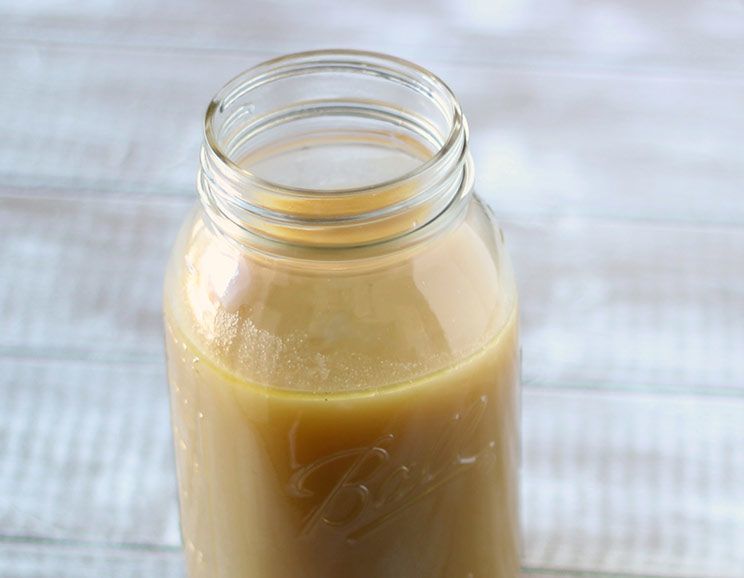
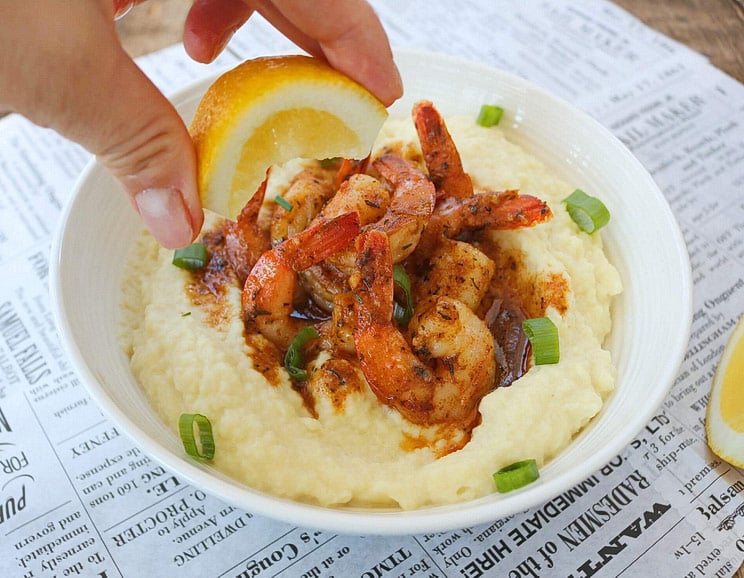 Shrimp and Cauliflower “Grits” Recipe
Shrimp and Cauliflower “Grits” Recipe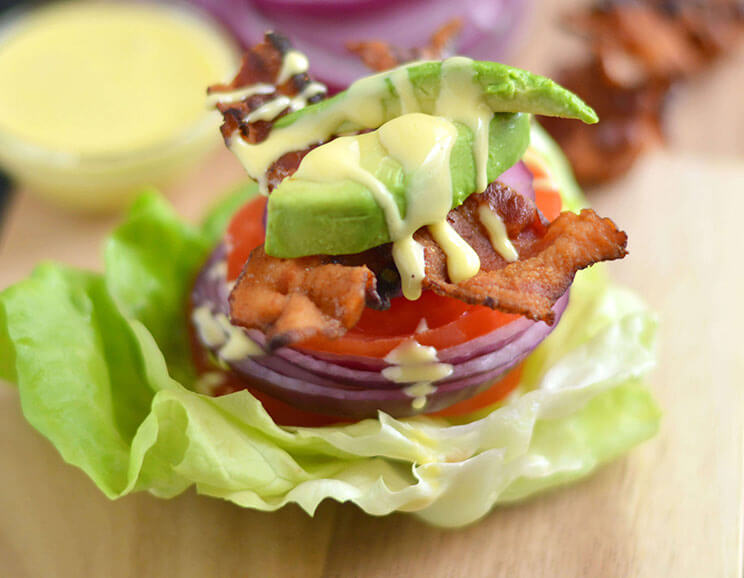

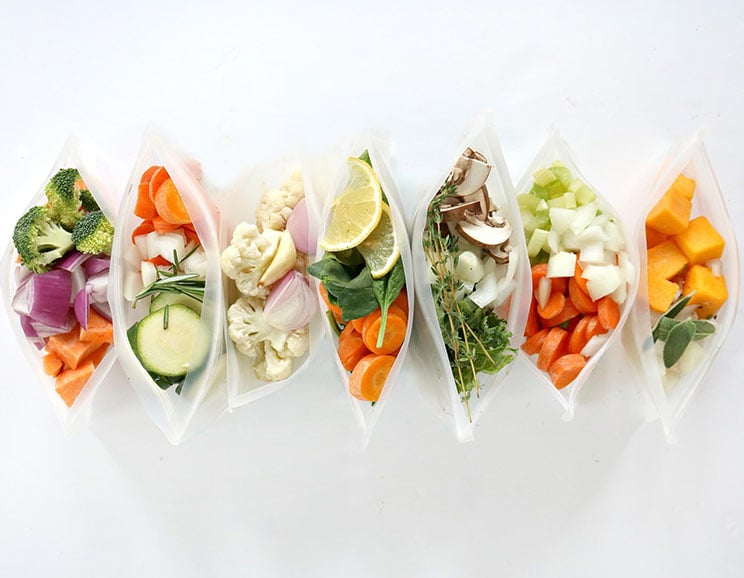




Show Comments